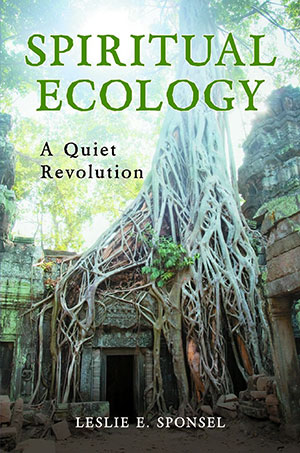Spiritual ecology reflects the convergence of several fields of study—science, religion, spirituality and sustainability. A new book defining the intellectual history of this developing field by Emeritus Professor Leslie E. Sponsel, Spiritual Ecology: A Quiet Revolution was the winning entry in the science category at the 2014 Green Book Festival in San Francisco.
A work environmentalist Bill McKibben calls “wise and careful,” the book offers a historical and cross-cultural context for understanding the spiritual ecology revolution. Spiritual Ecology focuses on pioneers in the movement and their contributions, while touching upon indigenous, Asian and western religious traditions.

Leslie E. Sponsel is emeritus faculty of the Anthropology Department at the University of Hawaiʻi at Mānoa’s College of Social Sciences, which he joined in 1981.
The Green Book Festival is an annual competition recognizing books that have made significant contributions to our understanding of, respect for and positive action on the world’s changing environment. Winning entries are selected by an independent panel of judges based on overall writing style, presentation and potential to enhance understanding of the environment and its issues.


